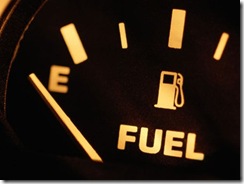Did You Know, We're All Crazy?
 I guess as a society, we Americans are all irrational and crazy when we are trying to life our normal lives! Okay, wait.. what am I thinking....there is some truth to that however.......
I guess as a society, we Americans are all irrational and crazy when we are trying to life our normal lives! Okay, wait.. what am I thinking....there is some truth to that however.......
I guess making sure we look after our hard earned money, and make sure that we have access to our hard earned money, and that we keep our hard earned money, makes us crazy. Well, to me if I had a mortgage, and I couldn't pay it, do you think the bank would give me extra time to pay it until I had the money? So why is it if a bank is running out of money, that I should leave my money in the bank, taking the chance that I may have to wait to get my money, when they need it to exist? I mean, where's the profit in it for me? Do I even get a "thanks" for leaving your money in our bank, so we can help a bank stay in business because they made bad business decisions is our job as good Americans?
And why is it wrong to make sure that you have fuel in your gas tank, so that you can go to work the next day. Or pick up your children. Or go to the grocery store? I mean seriously, this is the United States. When an entire region can't get fuel, that says a lot MORE about the state of affairs, than people just simply trying to live out their normal lives.
And if you happen to have over $100K in the bank, which is all that is guaranteed by the FDIC, you are suppose to just leave it in the bank and hope the bank isn't going under? And as for your mutual funds and your stocks, I guess although they are dropping 20-80%, you are suppose to leave that money where it is (Like WaMu, a 98% loss!) because it is your job as a good American. At least that's what I'm getting from the below news report entitled "Sour economy tied to psychology that fed gas panic."
Sorry, but this article is just crap. I think the bigger picture should be looked at. Why are our banks failing? Why are regions not able to get fuel because of a hurricane from over two weeks ago!? And what about those that price gouged the cost of fuel. NINE DOLLARS A GALLON FOR FUEL? Or what about only being limited to 10 gallons of fuel? Seriously, how far these days does 10 gallons of fuel last when you're stuck on a freeway in rush hour traffic? Instead, we are all just crazy trying to make sure to take care of our own.
As the captain said to the rats "All is well... all is well...." when the boat was sinking and the captain was heading to the lifeboats.
Sour economy tied to psychology that fed gas panic
September 28, 2008
NASHVILLE, Tenn. (AP)
As anxiety on Wall Street led banks and other investors to hoard cash last week, a different kind of market fear gripped cities across the Southeast.
A hurricane-related disruption in gasoline supplies prompted jittery drivers from Atlanta to Nashville to top off their fuel tanks more than usual, causing sporadic shortages and temporary shutdowns of stations. These closures only magnified the problem, of course, leading to more shortages, which sent local prices skyrocketing.
"It's a wonder people didn't go out and empty all of the grocery store shelves, too," said Larry Lamb, of Nashville. "All you need to do when something like this happens is just calm down."
Perhaps - in hindsight - that is the sensible thing to do.
But economists and other experts say individuals - not just Americans - are hard-wired to respond quickly when they are scared, and in a way that is not always in their own, or their neighbors', best interests.
Dennis Jacobe, chief economist for Gallup Inc., said an emotional response is quite normal when expectations - such as gas being available or the safety of a money-market fund - suddenly are called into question.
"When those basic assumptions of your daily life are violated, it sends you a shock and you do get emotional, irrational reactions," Jacobe said. "That means panic."
Lars Perner, an assistant professor of clinical marketing at the University of Southern California, said the combination of worries about the economy and gasoline supplies may have exacerbated motorists' reactions.
"Once you get into that kind of negative thinking, you often have a vicious cycle going on," Perner said. "You get into sort of a protective instinct that comes out - and you go and fill up."
This protective instinct is what drove pension funds, corporations and other institutional investors to make large-scale withdrawals from U.S. money-market mutual funds earlier this month, jeopardizing the nearly $3.4 trillion industry - until the government stepped in to prop it up.
That run was prompted after Reserve Primary Fund, the nation's oldest money-market fund, suffered a setback that had occurred just once before in the industry's nearly four-decades-long history: Its underlying assets fell to 97 cents for each investor dollar put in, a phenomenon the industry calls, "breaking the buck."
Peter Rizzo, senior director at ratings firm Standard & Poor's, said many of the money funds hit by a rush of redemptions had investments tied to financial sector firms that had far healthier balance sheets than Lehman Brothers and other fallen financial firms. But investors pulled out from the funds anyway, he said.
"What made things worse was people panicking and pulling out money quickly, and forcing fund managers to sell quickly at losses," Rizzo said.
"If you yell 'fire' in a theater," he added, "people will run."
Authorities promised to be vigilant for price gouging during the gas shortage, but costs sill shot up by an average of about 50 cents in a matter of days to more than $4 per gallon around Nashville and Atlanta. The current national average is about $3.68, according to the AAA auto club.
The runs on gasoline and money-market funds aren't the only recent examples of fear-induced economic behavior.
The U.S. Mint was forced last week to suspend sales of its popular American Buffalo 24-karat gold coins because it couldn't keep up with investors' soaring demand for commodities and other asset classes deemed to be safe.
And earlier this year, customers stockpiles imported Thai jasmine, Indian basmati and long grain white rice in response to soaring prices. That caused the country's two biggest warehouse chains, which cater heavily to small businesses like restaurants, to impose limits on bulk purchases.
Although with fuel situation has eased somewhat, the short supply in the Southeast continued into the weekend despite rising fuel production at refineries that had been shut down by hurricane Gustav and Ike, and government officials' attempts to assure drivers that there is enough gasoline for everyone - just not enough for everyone to be riding on a full tank at all times.
"People are freaking out," said landscaper Dennis McDonald, 50, after waiting to pump 10 gallons of gas into his pickup in Woodstock, GA.
Robert Prechter, a market forecaster and president of The Socionomics Institute of Gainsesville, Ga., said in an e-mail that the response in Nashville and other cities to even temporary shortages of gasoline should have been expected.
"Topping off is simply a rational reaction to disrupted supplies," he said. "So it is incorrect to charge everyday people with thoughtless herding in this case."
_______________
Associated Press Writers Rose French in Nashville, Greg Bluestein in Woodstock, Ga., and Mark Jewell in Boston contributed to this report.


0 Responses to "Did You Know, We're All Crazy?"
Post a Comment